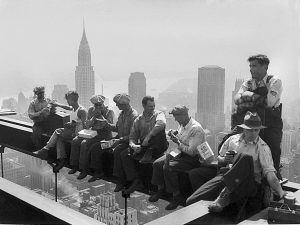
During one of the initial lectures in COMM 101, students voted on which major they would like to pursue, and resembling a majority of my peers I picked Finance. I chose this career path early on because I had a fantasy of exotic cars, diamond chains, and heaps of cash as high as Mount Everest. Although I knew about the difficulty and amount of hours investment bankers worked, I thought the benefits of extra money would outweigh the negatives.
I read an article about Stephen Ridley who graduated from one of the best universities and he was one of the largest revenue generators at a top tier European investment bank. He was living the life that I deemed ideal, until I discovered out he resigned due to a lack of motivation. Stephan hated the work he was doing and there was always an onslaught of emails, PowerPoint, Excel, and meetings that he did not care about. He became extremely bored of his dull job, and opted out in order to pursue something he was passionate about. After six months, he pursued his dream of playing the piano, and he recently released his first album.
There was clearly a disconnect between Stephen’s experience as a banker, and what I thought his job would entail. I could not figure out why Stephen would leave his job until the fifth week of COMM 292. Professor Charlton discussed motivations in the workforce, and how people are motivated by different things. Stephen pursued extrinsic rewards that he believed would fulfill him and balance out with the negative aspects of his work. However, what Stephen really wanted was work that was meaningful, progressive, and reflected a sense of competence which is why he chose to pursue his dreams on the streets of London.
I believe that Stephen was initially intrinsically motivated, but like myself he thought tangible awards would be enough for him to stay motivated in the workforce. People every day have jobs that don’t motivate them, and I think it is extremely important for individuals to self-reflect and to decide what inspires them. Through Stephen’s experiences I have decided to drop my target on money, and I have started thinking about a career that will fulfill my needs for motivation.
Word Count: 376
Works Cited:
Du, Lisa. “Former Banker Explains Why He Hated His Job So Much He Left To Be A Street Musician.” Business Insider. Business Insider, 26 Apr. 2012. Web. 06 Feb. 2017.

